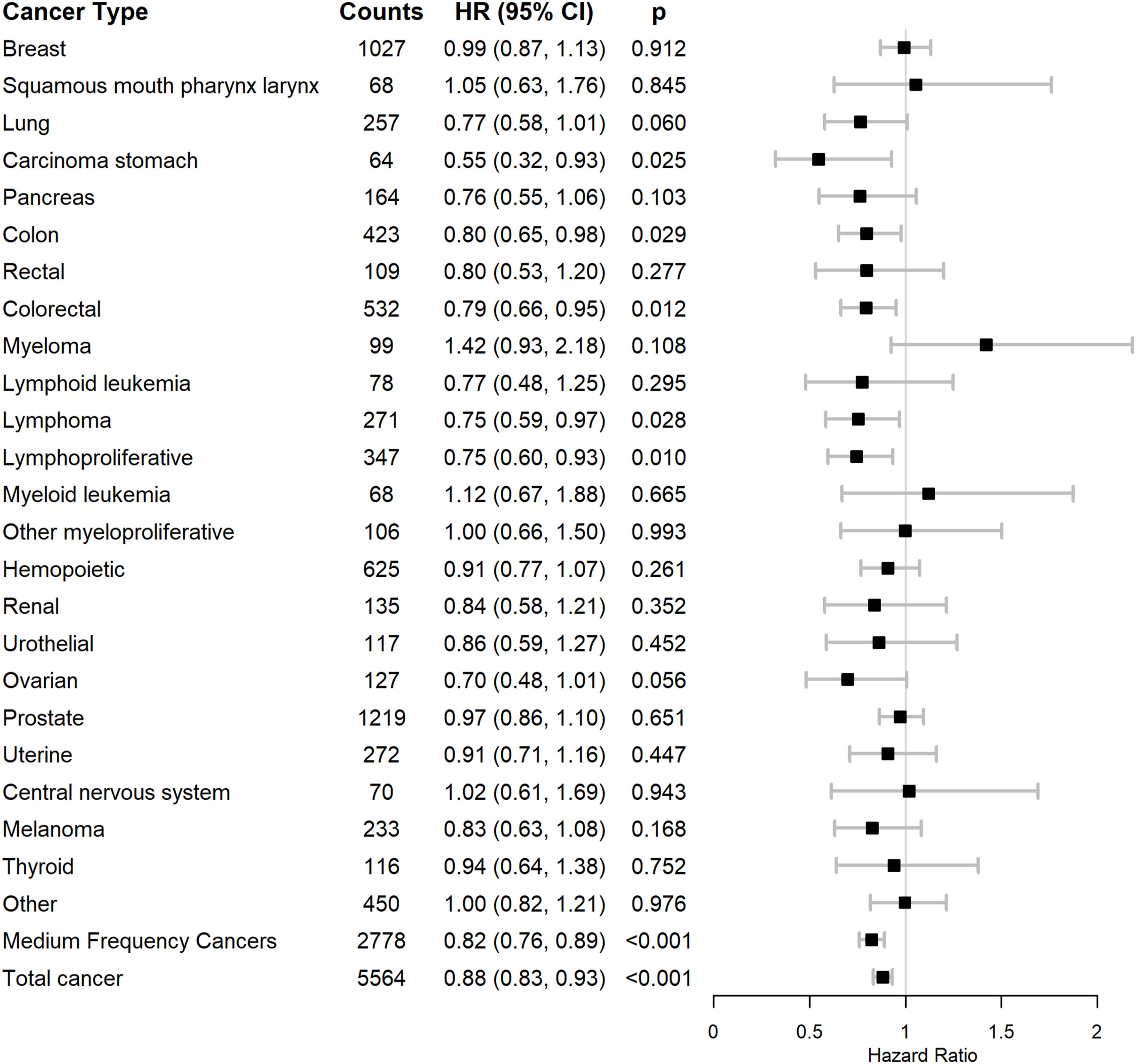From better sleep to healthier hearts, brains, bowels, and immune systems, studies keep finding strong associations between diets packed with fruits and vegetables and reduced risks of major diseases.
A new analysis now adds to growing evidence that veganism and vegetarianism lower the risk of some cancers.
"This is all relatively unique information and possibly the most robust that's out there concerning cancers such as stomach and lymphoma," says study lead author Gary Fraser, an epidemiologist from Loma Linda University in the US.
Related: Massive Review Finds No 'Safe' Level of Processed Meat Consumption
Fraser and colleagues compared medical data from 79,468 Seventh-day Adventists who lived in the US and Canada between 2002 and 2007. Initially free of cancer, a percentage of individuals would go on to contract various forms of the disease according to follow-up reports collected until 2015.
"Many of those non-vegetarian Adventist people in this study were still very health-conscious people, so in some ways, it's amazing that we found anything at all," explains Fraser.
Incredibly, the vegetarians were 45 percent less likely to develop stomach cancer in the period studied, and 25 percent less likely to have lymphomas. The overall reduced risk of all cancers was 12 percent.
"These data indicate a lower risk in vegetarians for all cancers combined, as well as for medium-frequency cancers as a group," the researchers wrote in their paper.

It makes sense that the clearest impacts would be seen in the gastrointestinal system, the team notes.
"These organs have direct contact with foods and their breakdown products during digestion and other derived metabolites that are provided by the actions of gut bacteria," write Fraser and colleagues.
"Processed meats are accepted as risk factors for both of these sites, and for stomach cancer also, higher intakes of fruits (especially citrus), grilled and barbecued fish and meats, and vegetables probably confer protection."
Diet did not, however, seem to convey any protection from other types of cancers, including those that impact the urinary tract or nervous system, Fraser notes.
"It may also be pointing the finger at several other cancers – such as lung, ovary, and pancreas," explains Fraser. "The evidence from this study was suggestive of lower risk in vegetarians, but did not quite reach the necessary standard to say more."
Although this is a large study spanning a long time period, it can only provide evidence for trends, as opposed to causes. So it may well be that those who are choosing to avoid animal products are also more likely to make other decisions that positively impact their health as well, like exercising more, which is also associated with better outcomes when it comes to cancer.
The focus on Seventh-day adventists helps somewhat account for this limitation, as religious followers tend to put a strong emphasis on healthiness.
It's also important to keep in mind that taking any diet too far can lead to health problems, too. Vegetarian diets can lead to nutrient deficiencies if not executed correctly. This can be a lot harder to do for those of us living in less wealthy areas and more likely surrounded by food deserts or swamped by unhealthy options.
What's more, vegetarianism can be extremely difficult for those with dietary health conditions to achieve. For these reasons, researchers often emphasize that including more vegetables in your diet, rather than becoming strictly vegan, is the most important takeaway from all these studies.
This research was published in the American Journal of Clinical Nutrition.
